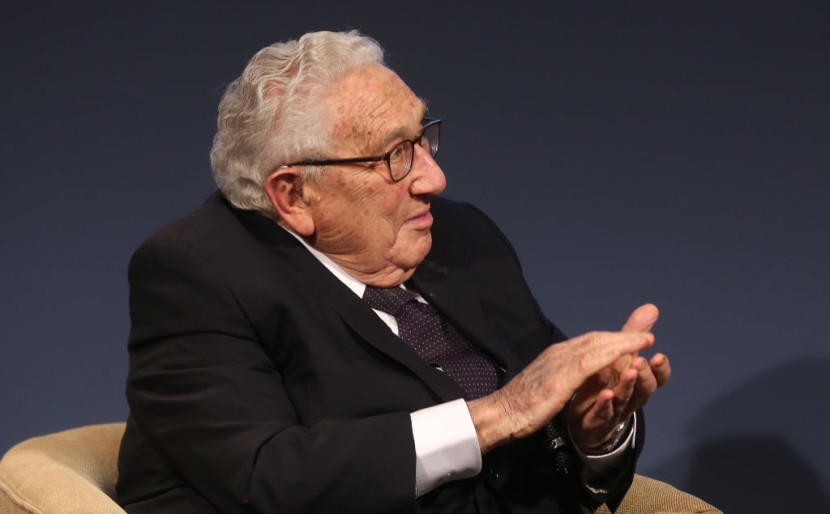Former Secretary of State and Nobel Peace Prize winner Henry Kissinger was pronounced dead on Wednesday at the age of 100.
The diplomatic powerhouse served as national security adviser and secretary of state under two former presidents. He left an indelible mark on United States foreign policy and earned a controversial Nobel achievement.
Henry Kissinger's Death

Kissinger reportedly died at his home in Connecticut, as said in a statement by his geopolitical consulting firm, Kissinger Associates Inc. There was no mention of the circumstances of the American diplomat's death.
The statement noted that Kissinger would be interred at a private family service followed late by a public memorial service in New York City. Past his centenary, he has been active in attending meetings in the White House, publishing a book on leadership styles, and testifying before a Senate committee about the nuclear threat that North Korea poses, as per Reuters.
He also made a surprise visit in 2023 to Beijing to meet with Chinese President Xi Jinping. During the 1970s, amid the Cold War, Kissinger had a hand in many of the epoch-changing global events of the decade. It was a time that he served as national security adviser and secretary of state under former President Richard Nixon.
Kissinger, a German-born Jewish refugee, made efforts that resulted in the US diplomatic opening with China, landmark U.S.-Soviet arms control talks, expanded ties between Israel and its Arab neighbors, and the Paris Peace Accords with North Vietnam.
However, his reign as the prime architect of US foreign policy waned after Nixon resigned in 1974 due to the Watergate scandal. He continued to be a diplomatic force as secretary of state under former President Gerald Ford. Throughout his life, he continued to offer strong opinions on various matters.
The former secretary of state received a Nobel Peace Prize for helping arrange the end of US military involvement in the Vietnam War. Despite his accomplishments, Kissinger was also reviled by many over the bombing of Cambodia during the Vietnam War, according to CNN.
Read Also : Mark Cuban To Sell Dallas Mavericks Stake to Casino Tycoons Prompting Frenzied Speculations
An Extraordinary Life as an American Diplomat
This resulted in the rise of the genocidal Khmer Rouge regime and Kissinger was also criticized for his support of a coup against a democratic government in Chile. In the Middle East, the American diplomat performed what later became known as "shuttle diplomacy."
It was an effort to separate Israeli and Arab forces after the fallout of the 1973 Yom Kippur War. Additionally, his "detente" approach to U.S.-Soviet relations largely guided US posture until the era of former President Ronald Reagan.
After the announcement of Kissinger's death, former President George W. Bush said that the US had "lost one of the most dependable and distinctive voices on foreign affairs." Additionally, former New York City Mayor Michael Bloomberg said that the late American diplomat was "endlessly generous with the wisdom gained over the course of an extraordinary life."
The daughters of former President Nixon, Tricia Nixon Cox and Julie Nixon Eisenhower, said Kissinger's life story was "so unique - and so thoroughly American," said BBC.
© 2026 HNGN, All rights reserved. Do not reproduce without permission.








